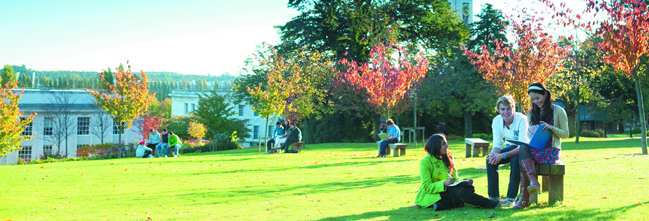
Students who have not had the opportunity to study anthropology at secondary school or college may come across the subject in a variety of different ways: through friends, from parents, open days, or attending outreach events such as The London Anthropology Day. The following section provides information, case studies, and resources, for students in Britain who are thinking of studying anthropology at the undergraduate level.
Which A-levels do I need to study anthropology at university?
The majority of universities offering anthropology in Britain, do not require students to have specific subjects at A-level. Most combinations of A-level subjects will provide some general preparation for an anthropology degree. However, if the undergraduate programme includes courses in physical/biological anthropology or forensics, there may be an expectation that students have an A-level in biology or a related subject.
What about A-level grades?
Anthropology is a challenging and very popular subject. As a result, many of the best-known and highly regarded universities require A-level grades ranging from AAB-BBB. Applicants should check with the admissions departments of the particular universities they are interested in, as admission guidelines and grades often change. In addition to A-level grades, other factors such as experience of working and travelling abroad can help students with their application.
Which universities offer anthropology in the UK?
Twenty-six universities in the UK offer anthropology at degree level. Take a look at this grid to find out what each university has to offer. This grid is intended to give a general overview of the major areas that are covered within the degree. For example, some universities will offer social anthropology or will combine social anthropology with archaeology. Other universities will offer social anthropology as well as courses in biological anthropology and/or material culture. In certain cases some universities will offer biological anthropology alongside forensic science. Students should consult university websites and admissions tutors to confirm which areas of anthropology will form part of their degree.
Can I combine anthropology with other subjects in my degree?
As shown in the university grid, the majority of universities allow students to combine anthropology with a variety of different subjects. Consult www.ucas.ac.uk and the universities for further details.
What should I be looking for when I visit an anthropology department?
If you are interested in a particular geographical region or an area of special interest within anthropology such as Anthropology of Religion or Anthropology of Childhood, it is worthwhile taking a look at the specific research interests of the teaching staff. You may also want to investigate the learning resources, support and facilities that are available to students. Don’t be shy to speak to admissions tutors and to lecturers who are willing to talk to prospective students. Departmental staff are often under time constraints, so make sure you make use of your time wisely and have some questions prepared.
What should I include in my personal statement?
There are no hard or fast rules of what to include in your personal statement. What is important is to demonstrate how you have sought to learn about anthropology through a variety of means, be it through reading relevant books, taking part in an archaeological dig, doing an internship, travelling, or attending outreach activities and open days.
How can I find out more about studying anthropology at university?
- Go to open days at universities and find out more about specific university programmes
- Attend the London Anthropology Day – the largest university taster day in Britain for year 12,13 and FE students, career advisors and teachers interested in learning more about anthropology
- Check out the RAI’s anthropology videos on our YouTube channel
- Sign up to the RAI’s ‘Anthropologist about Town’ events blog which gives you updates on RAI events and activities and publications for learning about anthropology
Which books would be useful to start learning more about the subject?
The RAI’s Education Outreach Programme has compiled a list of recommended readings for those beginning their exploration of anthropology. Take a look here for more details.
What is it like to study anthropology at university?
Anthropology is a fascinating and challenging subject. The majority of programmes offer diverse teaching and learning experiences, incorporating tutorials, lectures, seminars, laboratory classes and in some cases an opportunity to do first-hand research. Take a look at our students’ voices page to see why some students chose anthropology and what they enjoy about studying the subject at university.
What skills will I gain with an anthropology degree?
At the end of an undergraduate or postgraduate degree in anthropology, students will have gained a wide range of skills they can apply to developing their careers. Take a look at our knowledge and skills page for more details.
What are my career prospects with an anthropology degree?
Anthropologists work in a variety of careers in the academic, public, private and voluntary sectors - often without having the word ‘anthropologist’ in their job title. Take a look at our careers paths section for information, case studies and resources on careers in anthropology.
 The RAI's Education Department organises events, activities, contests as well as produces teaching and learning materials for anyone interested in learning about anthropology. Take a look at the many ways to get involved with like-minded people who are passionate about the subject:
The RAI's Education Department organises events, activities, contests as well as produces teaching and learning materials for anyone interested in learning about anthropology. Take a look at the many ways to get involved with like-minded people who are passionate about the subject:- Become an RAI member: take a look here for all the benefits associated with joining the RAI.
- Attend an event: take a look at our events page for a list of various anthropological events which take place nationally.
- Take part in discussions by joining us on Twitter @DiscoverAnthro and our Facebook Group
- Join our Student E-Network by emailing Nafisa Fera, the RAI's Education and Communications Officer .
- Become a volunteer: the RAI's Education Department is always looking for ethusiastic individuals to help out with our outreach events such as the London Anthropology Dayand the ESRC Festival of Social Science. If you are interested in volunteering email Nafisa Fera, the RAI's Education and Communications Officer .
- Apply for an internship: interns form an essential part of the RAI's Educational Outreach Activities. If you are interested in becoming an intern for the RAI's Education Department email Nafisa Fera, the RAI's Education and Communications Officer with your CV and a cover letter. A minimum of two months is required in order to be considered. For further information about volunteering at the RAI visit: http://www.therai.org.uk/about-the-rai/governance/getting-involved/
- Be creative: If you have a poem, song, artwork or photographs which reflect anthropological topics, email Nafisa Fera, the RAI's Education and Communications Officer . Take a look at the Your Space section for inspiration!
No comments:
Post a Comment